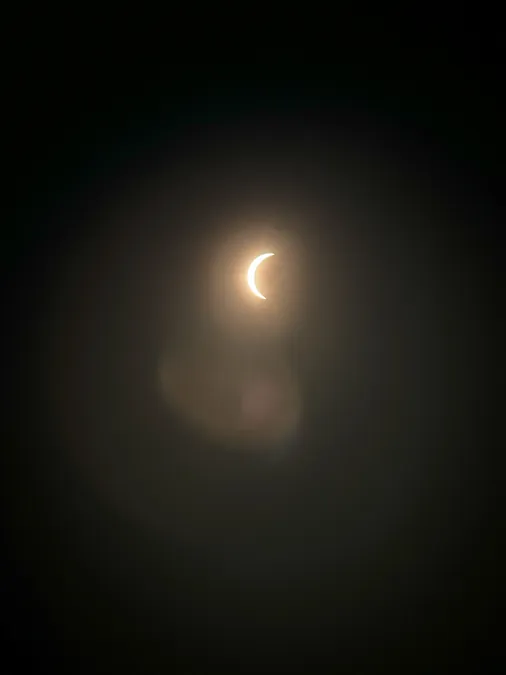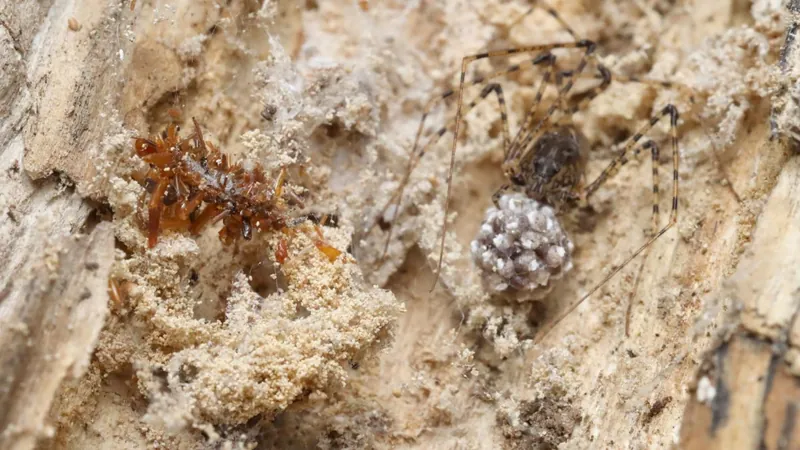
Birds in Silence: Unraveling Avian Reactions during the 2024 Solar Eclipse!
2025-04-08
Author: John Tan
A Groundbreaking Study
A groundbreaking study has uncovered remarkable insights into how birds reacted to the total solar eclipse that swept across North America on April 8, 2024. Published in *Scientific Reports*, the research indicates a notable decrease in bird vocalizations specifically in areas where the eclipse caused more than 99% obscuration. Titled "Continental-scale behavioral response of birds to a total solar eclipse," the study shines a light on the interplay between nature and astronomical events.
Innovative Research Methods
In an innovative approach, researchers from Loggerhead Instruments and the K. Lisa Yang Center for Conservation Bioacoustics at the Cornell Lab of Ornithology employed 344 community-powered acoustic monitoring devices, known as Haikuboxes. These devices recorded bird sounds and behaviors during the eclipse, allowing for a comprehensive analysis using advanced neural network techniques.
Unique Avian Responses
One of the most significant aspects of this research is its ability to account for human presence, which has long posed a challenge in understanding avian responses to celestial phenomena. Dr. David Mann, the lead author, noted, “While anecdotal evidence suggested birds might fall silent or change their behavior during a total solar eclipse, our study provides solid data confirming these behaviors and their links to the darkness experienced.”
Interestingly, the study revealed that different bird species exhibited varied reactions. For instance, black-capped chickadees sounded off differently at two separate locations in New York and Vermont: one site saw a decrease in their calls, while the other experienced a surge in vocalizations during and after the eclipse. Such inconsistencies raise intriguing questions about environmental and behavioral factors affecting these avian responses.
Contrasting Species Behaviors
Beyond just the chickadees, species like the American Robin engaged in continuous singing at one Kentucky location during totality, contrasting sharply with the silence noted among Pine Siskins in Maine. "The variability in these responses was fascinating," Mann explained, highlighting the complexity of avian reactions to unique environmental changes.
Filtering Human Influence
The study effectively eliminated biases by excluding data from sites where humans were present, ensuring a more accurate portrayal of how birds reacted purely to the eclipse. Mann observed, “Our early analyses indicated a significant drop in bird vocalizations around the time of totality, but once we filtered out human influence, a more intricate narrative emerged—revelations of how nature responds to celestial events without the interference of human excitement.
Implications for Future Research
Furthermore, the implications of this research extend beyond the eclipse itself. The findings highlight the Haikubox network's potential as a robust platform for future studies, especially in understanding the effects of light pollution and other sudden environmental changes on wildlife behavior.
As technology bridges the gap between humanity and nature, Mann emphasizes the vital role of community involvement in wildlife monitoring. "By utilizing community scientists to host acoustic devices, like Haikuboxes, we deepen our connection with the natural world, collecting invaluable data without disrupting the ecosystem."
A New Era of Citizen Science
With passive acoustic monitoring gaining traction, this pilot study is just the beginning. The research team, which also includes co-authors from the Cornell Lab of Ornithology, anticipates that this model will pave the way for more extensive studies powered by citizen science, pushing the boundaries of how we understand animal behavior in the face of natural phenomena. This collaboration showcases the incredible potential of combining technology and community engagement in uncovering the secrets of our wildlife.
Conclusion
As we witness the interplay between celestial events and earthbound life, one thing is clear: nature always has a story to tell, and with tools like Haikubox, we're just beginning to listen. Don’t miss out on future discoveries—get involved in community science initiatives and help uncover the mysteries of avian life!




 Brasil (PT)
Brasil (PT)
 Canada (EN)
Canada (EN)
 Chile (ES)
Chile (ES)
 Česko (CS)
Česko (CS)
 대한민국 (KO)
대한민국 (KO)
 España (ES)
España (ES)
 France (FR)
France (FR)
 Hong Kong (EN)
Hong Kong (EN)
 Italia (IT)
Italia (IT)
 日本 (JA)
日本 (JA)
 Magyarország (HU)
Magyarország (HU)
 Norge (NO)
Norge (NO)
 Polska (PL)
Polska (PL)
 Schweiz (DE)
Schweiz (DE)
 Singapore (EN)
Singapore (EN)
 Sverige (SV)
Sverige (SV)
 Suomi (FI)
Suomi (FI)
 Türkiye (TR)
Türkiye (TR)
 الإمارات العربية المتحدة (AR)
الإمارات العربية المتحدة (AR)